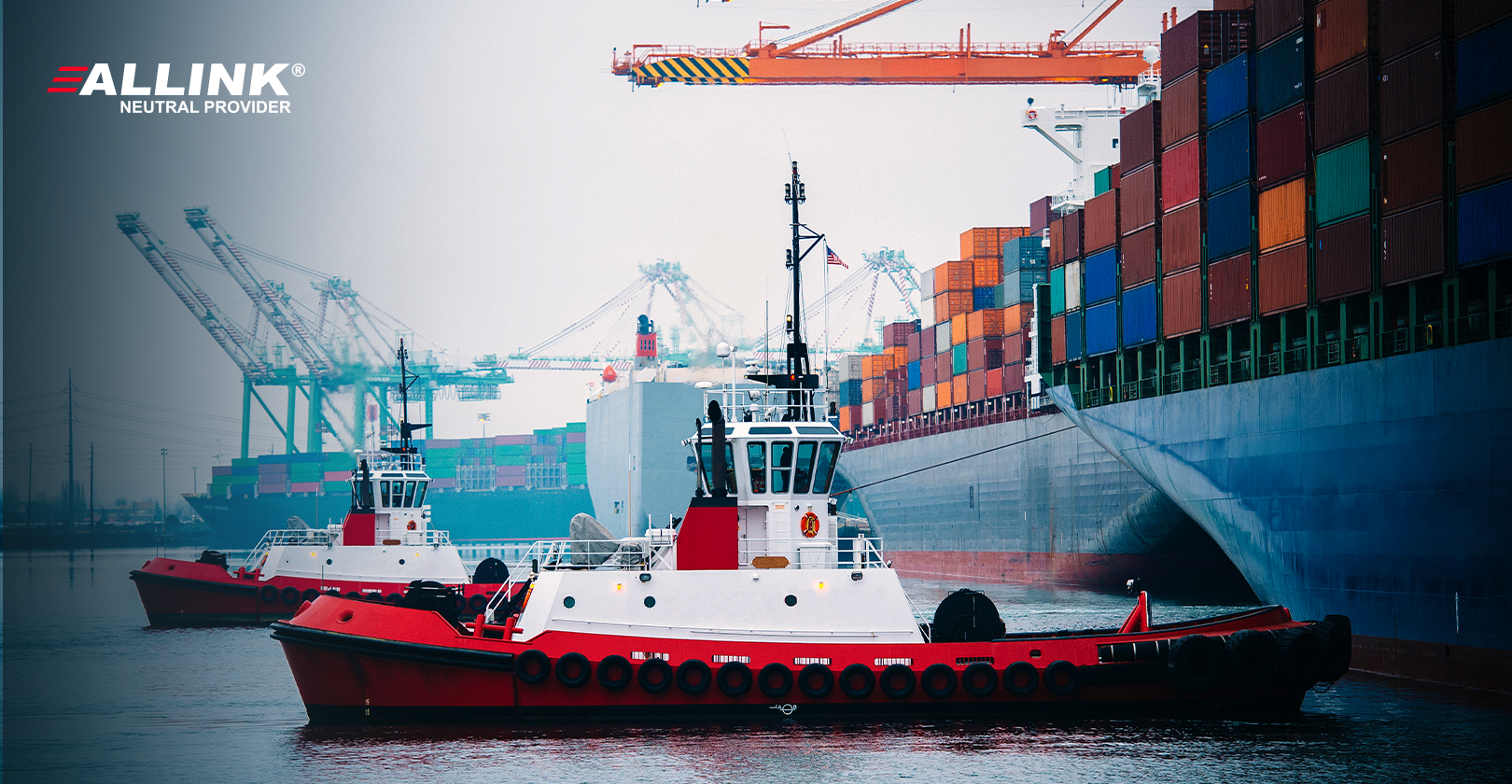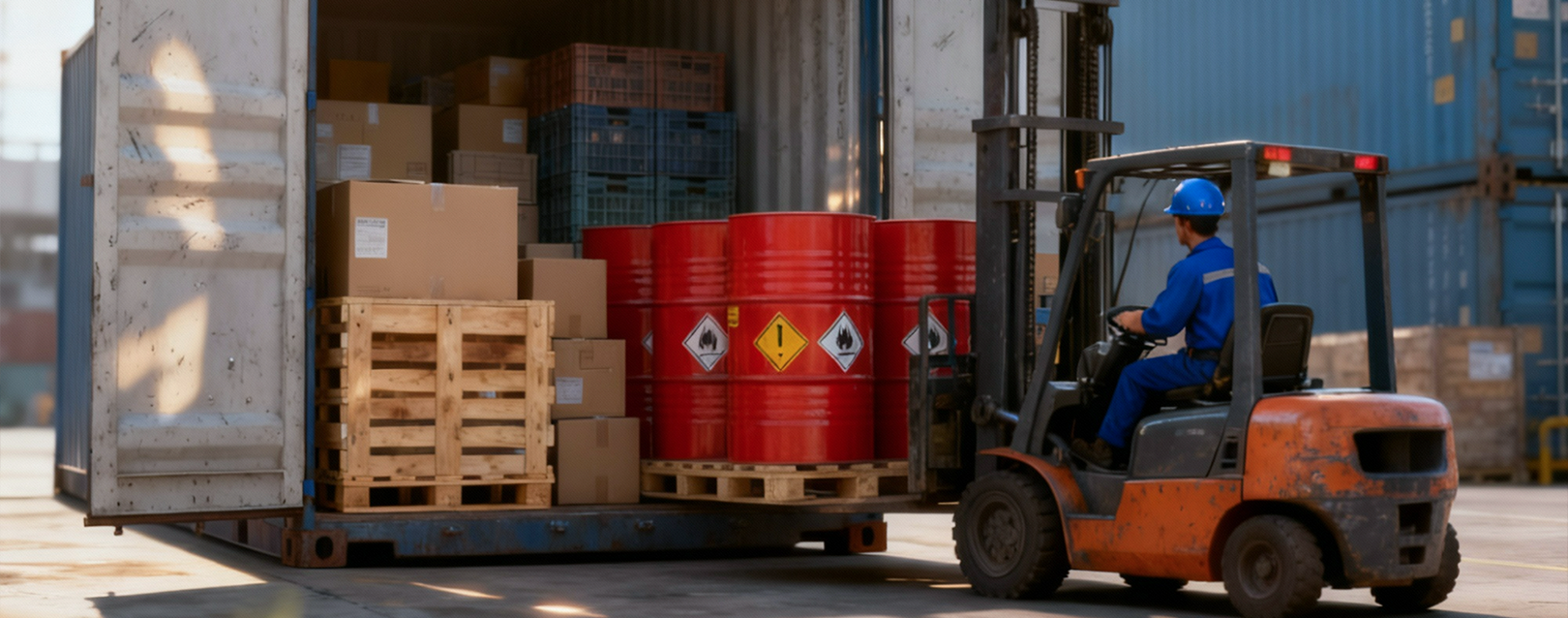
Have you ever stopped to think about the importance of container unloading in LCL mode? This fundamental process in maritime transport involves the careful removal of products and cargo from inside the container, requiring special attention to ensure the integrity of the items and the efficiency of the service.
In this article, we will explore the importance of container unloading in LCL mode, understand how it is carried out and highlight why it is crucial to have reliable partners during the import process.
Get ready to discover how correct unloading and the strategic choice of partners can positively impact the entire import logistics chain.
Let's dive into this subject and understand why container unloading in LCL mode is a key factor for the success of imports.
What is container spawning?
Container unloading is the procedure for removing products and cargo from inside the container, and it is essential that it is carried out in an appropriate and systematic manner.
Unloading is the opposite step to stuffing, which consists of organizing and positioning the cargo carefully and systematically inside the container, aiming at safety during transportation.
Therefore, the unloading process requires attention and care, and it is necessary to undo all the stowing procedures carried out during stuffing. The use of appropriate equipment, such as forklifts and specialized machines, is essential to optimize time and ensure efficiency during the process.
How is container unloading done in LCL mode?
Container unloading in the LCL modality is carried out according to the particularities of each region and port, taking into account the regulations of the Federal Revenue Service.
An example of this variation can be seen in Rio Grande do Sul, where, upon docking at the unloading point, the LCL container is segregated in a specific area and the terminal performs the unloading with care and attention, ensuring that the cargo is available for importers.
The next step is the action of the customs broker, responsible for customs clearance. In Itajaí, there is an additional particularity, in which the container can only be opened with authorization from the Ministry of Agriculture.
In this context, it is extremely important to select a suitable terminal, which offers operational security, adequate physical infrastructure and concern for legal aspects, in addition to guaranteeing the preservation of the importer's data.
This strategic choice aims to ensure compliance with customs requirements and other regulations, as well as guaranteeing the integrity of the cargo throughout the unloading process.
The importance of correct spawning in the LCL modality
Proper unloading in LCL mode plays a fundamental role in ensuring the proper completion of the maritime transport service. The import process begins with the contracting of appropriate partners, continues with the loading and transportation of the container and ends with unloading.
In the case of LCL cargo, there is no fixed standard for unloading. This is due to the wide variety of materials that can be transported in this mode, which results in varying requirements in terms of equipment needed to perform unloading.
This is why proper unloading in LCL mode requires dedicated work to analyze the particularities of each cargo transported. In this sense, advance planning is essential.
It is necessary to understand the characteristics of the cargo, such as fragility, dimensions, weights and any special needs, in order to determine the appropriate equipment for unloading. This detailed analysis ensures that the process is carried out efficiently and safely.
In addition, proper unloading also involves compliance with all legal and regulatory requirements applicable to the type of cargo. It is important to comply with customs, health and other specific restrictions imposed by the competent authorities.
A well-executed unloading process helps to preserve the integrity of the cargo, avoiding damage, loss or unnecessary delays. In addition, an efficient unloading process enables the cargo to be made available to importers quickly, allowing them to carry out the next steps in their supply chain quickly and effectively.
Therefore, correct unloading in the LCL modality is essential to ensure the success of the import process, guaranteeing the proper completion of the transport service and providing reliability and efficiency throughout the logistics flow.
Why is it important to pay special attention to the spawning terminal?
It is extremely important to pay special attention to the LCL unloading terminal. Importers often prioritize only the freight cost when choosing an NVOCC and forget to consider all the factors involved in choosing a service provider, such as the terminal that will perform the unloading.
A crucial aspect that a terminal must offer is compliance, that is, a special commitment to the security of customer data, as well as its infrastructure to support the unloading process with excellence.
It is essential to be sure that the chosen terminal has the capacity to guarantee not only the physical security of the cargo, but also the security of information related to the shipment. This includes protection against data theft and other cyber threats, ensuring the confidentiality and integrity of information throughout the unloading process.
Finally, operational security also plays a crucial role in choosing the unloading terminal. This includes not only the physical structure of the terminal, but also the way it operates. For example, it is recommended to choose terminals that offer a variety of larger scheduling windows. This allows for more flexible scheduling and avoids delays in receiving cargo at the factory.
In short, paying special attention to the LCL unloading terminal is essential to ensure a safe, efficient and hassle-free operation. It is necessary to consider not only the freight price, but also compliance, the total costs involved and the operational security offered by the terminal.
This careful approach contributes to a successful unloading and the overall success of the import process.
Which companies perform container unloading in LCL mode?
In the LCL modality, container unloading is a service performed by terminals and can be carried out by internal or outsourced labor. In public ports, this function is generally performed by unions.
It is worth remembering that in LCL, the choice of the unloading terminal is the responsibility of the consolidator (also called NVOCC) for that shipment, and there is no possibility of changing terminals by companies that have cargo in the container.
Why rely on trusted partners at LCL?
Relying on reliable partners for imports is vital to ensuring the success and efficiency of the process. When dealing with imports, especially in the LCL modality, it is essential to choose reliable partners.
The focus should not only be on the freight cost, but also on the NVOCC’s ability to facilitate unloading at a terminal that offers adequate storage, speed and bureaucratic compliance.
Choosing a good NVOCC goes beyond the freight cost. It is necessary to consider the company’s expertise, its reputation in the market and its ability to offer integrated solutions that meet the client’s specific import needs.
Reliable partners have solid knowledge of customs regulations and processes, in addition to having established relationships with reliable unloading terminals.
By relying on reliable partners for imports, importers can expect a quality service that prioritizes cargo security, speed in unloading and compliance with all legal requirements.
Reliable partners have a well-established network of operations, which results in greater efficiency and reduced risk throughout the import process.
Allink is a company specialized in logistics solutions for imports, including LCL cargo transportation. With our expertise and market knowledge, we are prepared to take your cargo to reliable unloading terminals, ensuring efficient imports for our customers.
Don't leave your imports to chance, choose reliable partners who offer integrated and customized solutions to meet your needs. Contact our experts at Allink and find out how we can help you improve your LCL cargo imports.
Continue a navegar no blog da Allink
Mantenha-se informado sobre o comércio exterior
Assine nossa newsletter e receba atualizações semanais de forma gratuita sobre o mundo da logística.




